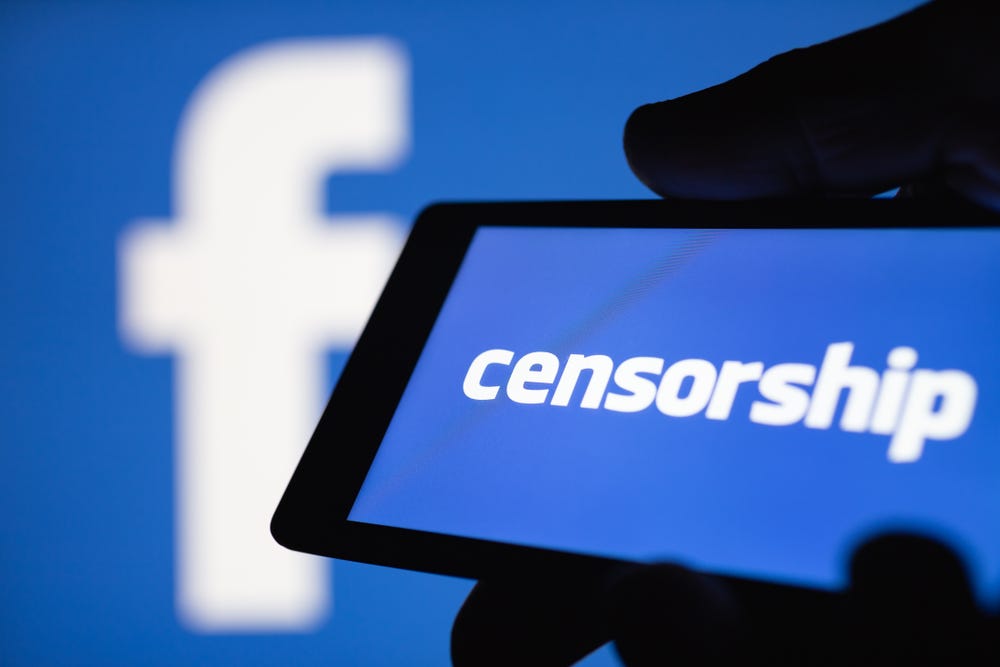E-Pluribus | January 24, 2023
A power play by the transgender lobby; Portland's self-destructive behavior; and a report on the Centers for Speech, er, Disease Control and Prevention.
A round-up of the latest and best writing and musings on the rise of illiberalism in the public discourse:
Tal Fortgang: Ivan Provorov Went to a Hockey Game, and a Culture War Broke Out
For a community that constantly calls for tolerance and diversity, LBGT activists can be awfully intolerant of diversity. Tal Fortgang writes at The Wall Street Journal of Philadelphia Flyer’s player Ivan Provorov refusal to wear a warm up jersey with a rainbow flag with the rest of the team citing his religious beliefs and the subsequent culture war kerfuffle.
The confusion of Mr. Provorov’s critics is forgivable, even if their zeal to punish dissenters isn’t. To them, the rainbow flag—which, in this case, includes the transgender flag—stands for unobjectionable ideals: love, tolerance, freedom. Yet in neglecting to place themselves in a stranger’s shoes, these commentators failed the hard test of a sincerely pluralist society. To an adherent of a traditional religion, the flag in question stands not for a few principles of decency, but for a whole worldview. If Mr. Provorov had worn a jersey displaying not the rainbow flag but the words “Love Everyone,” it isn’t clear his critics would have been satisfied. Instead, he might have been derided like those who say “all lives matter.” That is because the particular flag represents a movement with substance beyond platitudes. It conveys a set of beliefs about the human person and his purpose in this world.
The flag stands for the celebration of liberation. But traditionally religious people tend to reject the idea that liberation from restraint is a worthwhile goal or that liberation from old ideas is worthy of praise. Though it is hard for many Americans to think along those lines, it is nonetheless a legitimate fault line, a good-faith philosophical difference, that divides us. It is how Mr. Provorov can say that he respects everyone but not wear the flag.
Many religious people see freedom as the proper end of our shared political life, precisely because we recognize that every American sees and pursues the good life differently. But we do so understanding that freedom to live as one pleases is a two-way street. So most of all, that flag and the fiery demands to respect the orthodoxy that invariably accompanies it are a violation of the pluralist compromise. Those who wave and wear it preach tolerance but don’t seem committed to that value in the face of other viewpoints.
Read it all.
Jonah Goldberg: A Pox Upon Portland
Until recently, Portland had a reputation as the progressive promised land, the liberal city of the future. After a recent visit, Jonah Goldberg of The Dispatch has some thoughts about how and why the progressive dream city is going full dystopian.
[I] want to make a point about populism and reaction. Lots of things can happen with cities. They can die. They can decay for a very long time. They can also provoke waves of populism far outside their borders. Revolutions are born in cities, after all, and counterrevolutions are created by them, too.
Now, I don’t think we’re going to have any revolution coming out of Portland, though I’m sure there are a lot of Antifa types who disagree. But the failure of cities, particularly cities run by one party for decades, can invite backlashes. This is a vital point for a lot of folks on the right and left to understand. There are no permanent victories. And the more you act like you’ll always be in power, the quicker your defeat will come. Radical excess radicalizes the opposition.
[ . . . ]
[T]he mismanagement of Portland is idiotic and tragic not only on normal terms—wasted lives, wasted money, reduced quality of life, etc.—but on progressivism’s own terms. Decades of one-party rule—Portland last had a Republican mayor in 1980; Oregon last elected a Republican governor in 1982—have made this city worse for “the most vulnerable” and for the middle-class and upper-class people who are the lifeblood of any city.
I will never understand why so many progressives have a hard time being tough-minded about some obvious things. I get mandating living wages and bad zoning and all the economic stuff. I get supporting LGTBQI rights and most of the social issue stuff, too. But is it really so hard to say that people shouldn’t be allowed to defecate in the street?
[ . . . ]
I don’t know any normal Democrats or progressives who live in such places and actually want to live this way. But these one-party cities have their own form of demosclerosis, in which activists and agencies that benefit from the problems they create get to set the agenda. It would be smart for some progressive to run against the Democratic machine. They could say all the right things about the environment, racial justice, etc. But they could also say we need more cops. We need fewer drug addicts living on our streets. We need more businesses and a climate that attracts them.
Read the whole thing.
Robby Soave: How the CDC Became the Speech Police
The coordination of government agencies and social media companies has raised many questions about what constitutes censorship. Now Reason recently obtained documents showing how, during the pandemic, Facebook often toed the line for the CDC regarding “misinformation.” Robby Soave reports:
. . . According to a trove of confidential documents obtained by Reason, health advisers at the CDC had significant input on pandemic-era social media policies at Facebook. . . They were consulted frequently, at times daily. They were actively involved in the affairs of content moderators, providing constant and ever-evolving guidance. They requested frequent updates about which topics were trending on the platforms, and they recommended what kinds of content should be deemed false or misleading. "Here are two issues we are seeing a great deal of misinfo on that we wanted to flag for you all," reads one note from a CDC official. Another email with sample Facebook posts attached begins: "BOLO for a small but growing area of misinfo."
These Facebook Files show that the platform responded with incredible deference. Facebook routinely asked the government to vet specific claims, including whether the virus was "man-made" rather than zoonotic in origin. (The CDC responded that a man-made origin was "technically possible" but "extremely unlikely.") In other emails, Facebook asked: "For each of the following claims, which we've recently identified on the platform, can you please tell us if: the claim is false; and, if believed, could this claim contribute to vaccine refusals?"
The platforms may have thought they had little choice but to please the CDC, given the tremendous pressure to stamp out misinformation. This pressure came from no less an authority than President Joe Biden himself, who famously accused social media companies of "killing people" in a July 2021 speech.
[ . . . ]
"What's at stake is the future of free speech in the technological age," says Jenin Younes, the group's litigation counsel. "We've never had a situation where the federal government at very high levels is coordinating or coercing social media to do its bidding in terms of censoring people."
These concerns are well-founded, as the emails obtained by Reason make clear. Over the course of the pandemic, CDC officials exchanged dozens of messages with content moderators. Most of these came from Carol Crawford, the CDC's digital media chief. She did not respond to a request for comment.
"If you look at it in isolation, it looks like [the CDC and the tech companies] are working together," says Younes. "But you have to view it in light of the threats."
Read it all here.
Around Twitter
Wesley Yang on the Gender Religion:
Via Will Saletan, do we really understand our opponents beliefs?
Michelle Pollino on her experience as a journalist who came out of the legacy left-leaning media:








